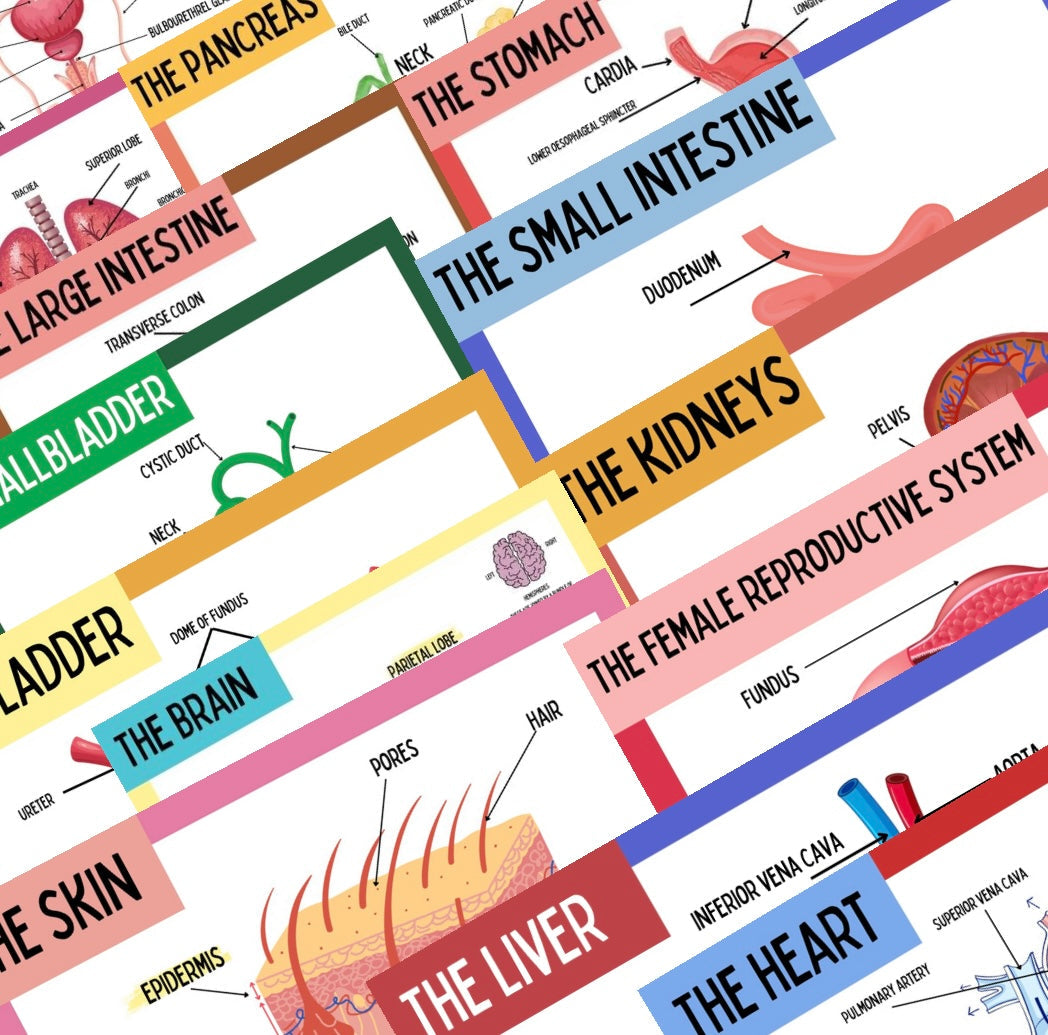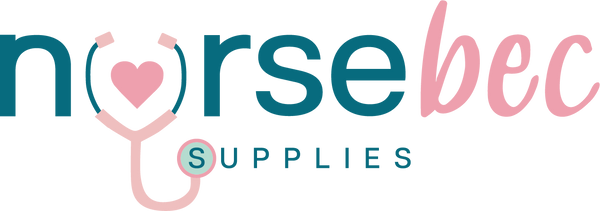
How to learn Anatomy & Physiology
Share
Studying anatomy and physiology is crucial for student nurses. Here are some tips to help you excel in these subjects:
1. **Understand the Basics**: Start with a solid understanding of anatomical terms and basic physiological concepts. This forms the foundation for more advanced topics.
2. **Visual Aids**: Use anatomical charts, models, and online resources to visualise the human body's structures and functions.
3. **Flashcards**: Use flashcards such as the ones in the image to memorise key terms, anatomical structures, and their functions. Quiz yourself regularly.
4. **Colour Coding**: Use colour-coded diagrams or notes to differentiate between structures and systems, making it easier to remember.
5. **Group Study**: Collaborate with classmates for group study sessions. Discussing complex topics can help reinforce your understanding.
6. **Practice Lab Work**: If available, spend time in the anatomy lab to get hands-on experience with cadavers or models. This can provide a deeper understanding.
7. **Anatomy Apps**: Explore anatomy apps or online resources that offer interactive 3D models and quizzes.
8. **Use Mnemonics**: Create memorable acronyms or phrases to remember complex information, such as cranial nerves (e.g., "Oh, Oh, Oh, To Touch And Feel Very Green Vegetables AH").
9. **Apply Concepts**: Connect what you learn in anatomy and physiology to real-life patient scenarios. Understanding how these concepts apply to nursing practice can make them more meaningful.
10. **Repetition**: Review and revisit topics regularly to reinforce your memory and understanding.
11. **Focus on Systems**: Break down your studies by focusing on one body system at a time. This can help prevent overwhelm.
12. **Clinical Exposure**: If possible, shadow nurses or clinicians to see how anatomy and physiology knowledge is applied in a clinical setting.
13. **Seek Clarification**: Don't hesitate to ask your instructors for clarification if you're struggling with certain concepts.
14. **Practice Quizzes and Exams**: Find practice quizzes and exams to test your knowledge and identify weak areas.
15. **Stay Organised**: Use a study schedule or calendar to allocate time for anatomy and physiology alongside other nursing coursework.
16. **Stay Healthy**: Get enough sleep, eat well, and manage stress. A healthy lifestyle can improve your ability to learn and retain information.
🔸Anatomy and physiology resources:
https://nursebecsupplies.co.uk/search?q=anatomy&_pos=1&_psq=ana&_ss=e&_v=1.0
Remember that anatomy and physiology can be challenging, but with dedication and effective study strategies, you can master these subjects and excel in your nursing education.
